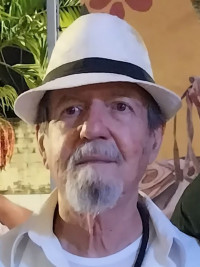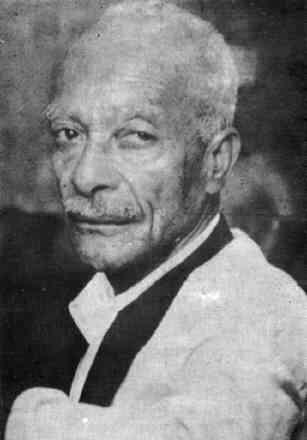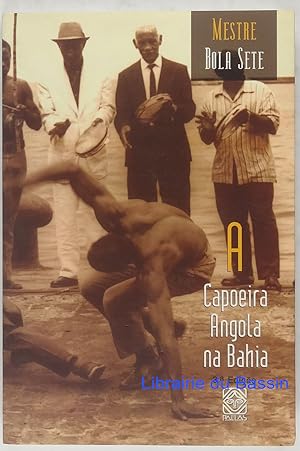Mestre Bola Sete
- Lives in: Recôncavo, Bahia, Brasil
- Date of Birth: 31-May-1950
- Learned from: Mestre Pastinha, Mestre Pessoa Bababá
-
Books:
- Capoeira Style: Angola
Biography:
José Luiz Oliveira Cruz — Mestre Bola Sete
31 May 1950, Santo Antônio de Jesus (BA)
Mestre Bola Sete learned capoeira first on the street and then at the source. Self-taught in 1962 around Salvador, he began formal study in 1968 with Pessoa Bababá, a merchant seaman and disciple of Mestre Pastinha. In 1969 he entered Pastinha’s academy at Pelourinho 19 and took on the role of Fiscal de Campo—thequiet guardian of ritual who keeps the roda honest and the doorway clear. He recalls the lesson that stayed with him above all: humility. “A humildade foi a maior lição que tive,” he says—and he carried it into every circle.
After a decade by Pastinha’s side, he received his diploma in 1979, authorization to teach Angola on his own terms. In 1980 he opened the Centro de Cultura da Capoeira Tradicional Bahiana, continuing his mestre’s work with measured pedagogy and firm protocol. Away from the roda he worked in publicservice—Transport Sector, Secretariat of Industry, Commerce and Mining—provingthat a steady day job and a steady berimbau can share the same spine. Weekends often found him leading training and rodas at the Passeio Público near Campo Grande, keeping an open door for anyone willing to respect the ritual.
His nickname, “Bola Sete,” came early: he trained dressed head-to-toe in black, like the seven ball in snooker. His outlook stayed just as distinctive. He’s an unflinching critic of acrobatic showmanship for its own sake—“today a lot of blows hit only air”—and a defender of Angola’s defensive, cunning, music-led essence. He echoes João Pequeno’s famous measure: old capoeira was less aggressive and more dangerous; much of today’s is louder and less effective.
As an author and elder, Bola Sete helps codify what he guards. Hisbooks—Capoeira Angola: Do Iniciante ao Mestre (2003), A Capoeira Angola na Bahia (2005), and Histórias e Estórias da Capoeiragem (2006)—lay out sequences, ethics, and memory so beginners and mestres can share a language. His CD Aqui Só Angola captures the classroom tone: voice low, rhythm clear, berimbau first. Within ABCA, he has served on—and at times presided over—the Conselho de Mestres, arguing that capoeira is culture before it is sport, livelihood without selling the soul.
Ask him for guidance and you’ll get field notes rather than slogans: respect the ritual; ginga is the base; keep the eyes soft and the vision wide; learn to sing and play berimbau; control before speed; malícia decides; don’t show your whole game to a stranger; loyalty in the chamada; avoid the fight—finish it quickly if you must. Above all, carry capoeira everywhere: body and spirit ready in street and sala alike.
Selected milestones
-
1950 — Born in Santo Antônio de Jesus (31 May)
-
1962 — Begins practicing as an autodidact in Salvador
-
1968 — Trains with Pessoa Bababá
-
1969 — Joins Mestre Pastinha’s academy; serves as Fiscal de Campo
-
1979 — Receives diploma from Pastinha
-
1980 — Founds Centro de Cultura da Capoeira Tradicional Bahiana
-
1990s–present — Teaches, writes, records; active leadership within ABCA
Where the toque begins and the circle tightens, Mestre Bola Sete is the steady hand on the edge—keeping the old house breathing and the game true.


